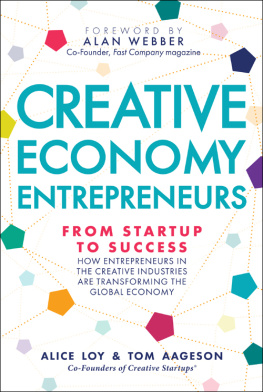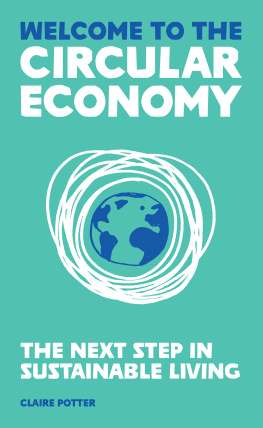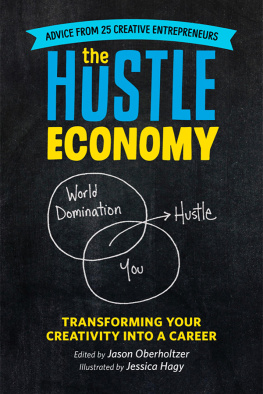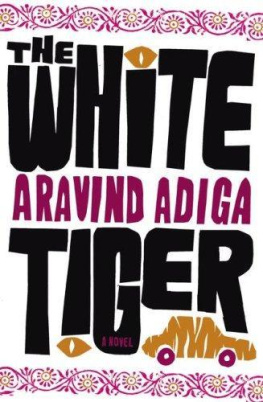Brouillette - Literature and the Creative Economy
Here you can read online Brouillette - Literature and the Creative Economy full text of the book (entire story) in english for free. Download pdf and epub, get meaning, cover and reviews about this ebook. City: Stanford;California, year: 2014, publisher: Stanford University Press, genre: Politics. Description of the work, (preface) as well as reviews are available. Best literature library LitArk.com created for fans of good reading and offers a wide selection of genres:
Romance novel
Science fiction
Adventure
Detective
Science
History
Home and family
Prose
Art
Politics
Computer
Non-fiction
Religion
Business
Children
Humor
Choose a favorite category and find really read worthwhile books. Enjoy immersion in the world of imagination, feel the emotions of the characters or learn something new for yourself, make an fascinating discovery.

- Book:Literature and the Creative Economy
- Author:
- Publisher:Stanford University Press
- Genre:
- Year:2014
- City:Stanford;California
- Rating:5 / 5
- Favourites:Add to favourites
- Your mark:
- 100
- 1
- 2
- 3
- 4
- 5
Literature and the Creative Economy: summary, description and annotation
We offer to read an annotation, description, summary or preface (depends on what the author of the book "Literature and the Creative Economy" wrote himself). If you haven't found the necessary information about the book — write in the comments, we will try to find it.
Literature and the Creative Economy — read online for free the complete book (whole text) full work
Below is the text of the book, divided by pages. System saving the place of the last page read, allows you to conveniently read the book "Literature and the Creative Economy" online for free, without having to search again every time where you left off. Put a bookmark, and you can go to the page where you finished reading at any time.
Font size:
Interval:
Bookmark:
LITERATURE AND THE CREATIVE ECONOMY
Sarah Brouillette
STANFORD UNIVERSITY PRESS
STANFORD, CALIFORNIA
Stanford University Press
Stanford, California
2014 by the Board of Trustees of the Leland Stanford Junior University.
All rights reserved.
No part of this book may be reproduced or transmitted in any form or by any means, electronic or mechanical, including photocopying and recording, or in any information storage or retrieval system without the prior written permission of Stanford University Press.
Printed in the United States of America on acid-free, archival-quality paper
Library of Congress Cataloging-in-Publication Data
Brouillette, Sarah, 1977author.
Literature and the creative economy / Sarah Brouillette.
pages cm
Includes bibliographical references and index.
ISBN 978-0-8047-8948-6 (cloth : alk. paper)
1. English literature21st centuryHistory and criticism. 2. Creation (Literary, artistic, etc.)Economic aspects. 3. AuthorshipEconomic aspects. 4. Cultural industries. 5. Cultural policy. I. Title.
PR481.B76 2014
820.90092dc23
2013028369
ISBN 978-0-8047-9243-1 (electronic)
Contents
Acknowledgments
I first wish to thank Lina Shoumarova, the amazing graduate assistant I have been working with for the past few years. Having helped me to remake and improve this book on several occasions, she may well know it better than I do.
I started thinking concretely about this research while I held a Rockefeller Humanities Fellowship at the Smithsonian Centre for Folklife and Cultural Heritage. I was generously mentored there by James Early and lucked out in having Bill Anthes as my cubicle mate. I completed much of the manuscript as a Leverhulme Visiting Fellow at Queen Margaret University in Edinburgh, a position I held thanks to David Finkelstein. It was there that I met Jeremy Valentine, who shared many of my interests and welcomed me to ramble on about them, and Mark Banks, whose scholarship has thoroughly informed my own stance on creative work. All the while a Standard Research Grant from the Social Sciences and Humanities Council of Canada supported semi-frequent research trips to London and made it possible for me to fund my invaluable research assistantsLina, Steve McLeod, and Mike Labreque.
At MIT, Shankar Raman and Jim Buzard were inspiring examples and gracious readers of my work, and Joshua Green was a constant source of comfort and provocation. Since moving to the Department of English at Carleton University, I have benefited greatly from having Paul Keen as my chair and from working with remarkably convivial, supportive, engaging colleagues. Brian Greenspan and Franny Nudelman in the Department of English, and Miranda Brady, Chris Russill, and Melissa Aronczyk in the School of Journalism and Communication, have been particularly necessary friends and interlocutors, as has Tai Zimmer, a member of Carletons wider community.
When the manuscript for this book first started to cohere, discussions with Matthew Hart and Michael Szalay determined how I ended up conceiving my project. I cannot thank them enough. Since beginning to work with Stanford University Press, I have appreciated the guidance and support of Emily-Jane Cohen, and my work has benefited greatly from Cynthia Lindlofs editorial precision and insight. The two readers who reported on the manuscript managed to be both incisive and kind.
Thank you as well to the network of scholars who in various ways kept me reading and writing, outraged and informed, thinking and laughing. These include Daniel Allington, Sara Amon, Jasper Bernes, Sarah Blacker, Nicholas Brown, Piers Brown, Sam Cohen, Sharae Deckard, David Farrier, Alan Finlayson, Elaine Freedgood, Jenny Godfrey, James Graham, Dave Gunning, Max Haiven, Stefan Helgesson, Doug Henwood, Andrew Hoberek, Graham Huggan, Joseph Jeon, Aaron Kilner, Lee Konstantinou, Sara Malton, John Marx, Sophie Mayer, John McLeod, Ana Mendes, Padmini Ray Murray, Pashmina Murthy, Mathias Nilges, Andrew Pendakis, Rashmi Sadana, Kulpreet Sasan, Emilio Sauri, Min Hyoung Song, Claire Squires, Neelam Srivastava, Imre Szeman, Rebecca Tierney-Hynes, Trysh Travis, Andrew van der Vlies, Eva Hemmungs Wirtn, and Daniel Worden.
The thought and writing behind this book often happened because I had occasion to give talks and contribute chapters to books and journals. Material from was published in a longer and different form in Modern Fiction Studies 58.3 (2012), copyright 2012 The Johns Hopkins University Press.
I would be remiss if I did not mention my appreciation for the staff at Bridgehead Coffee in Old Ottawa South and Coffee Angel in Edinburgh, where I regularly worked or eavesdropped on nearby conversations when work was not happening.
This book has two dedicatees: Travis DeCook, who is a model of careful and heartfelt scholarship and a presence in everything I write; and our son Benmy favorite dance partner and cherished playmate.
Introduction
Britains New Labour government, in power from 1997 to 2010, attempted an unprecedented incorporation of culture into governance. At the heart of this effort was circulation of the idea that the UK was becoming increasingly dependent on the profitability of its creative economy. Faith in this idea has spread with remarkable speed. United Nations agencies have, for example, embraced the idea of the creative economy and attempted to devise ways to measure its impact. UNESCOs Creative Cities Network, and designation of official Cities of Literature, Cities of Film, Cities of Music, and so on, reflects its desire to help unlock the creative, social and economic potential of cultural industries. This yoking together of cultural, social, and economic goals is at the heart of the creative-economy frameworks adopted by local and national governments in the UK and elsewhere. What subtends the ready adoption of these frameworks?
I argue in this book that we find some answers to this question in literary studies. I consider, first, how long-standing ideas about literature and literary writers have informed creative-economy policymaking and the discourses that have arisen with it and complement it. I then examine how writers have articulated complicity with and distance from various facets of the placement of art in instrumental service to the economya placement that was of heightened concern for many cultural workers during the New Labour years but is of course by no means exclusive to it. Among the phenomena that have served to heighten concern are the
Reference to the creative economy, as to the attendant creative industries and creative class, first emerged in relation to claims about the empirically measurable economic might of the practices, institutions, and individuals ostensibly served by the intellectual property regime. However, it would be unwise to perpetuate the binary positioning of positivist approaches that take the existence of the creative economy for granted versus the more suspicious treatment of the creative economy as a script designed to serve political interests. Attempts to account for the creative economy, even those sponsored by government, are rarely free of contradiction and ambivalence, and we risk overlooking observable economic and cultural change if we treat the creative economy as little more than a fantastic projection of political will. Instead, I stress the dialectical interplay between the discourse of the creative economy and the real world of cultural economics that it is meant to encompass and quantify; my goal is not to debunk the notion that there is such a thing as the creative economy but rather to focus attention on how and why faith in its existence has become consequential.
One of my core claims, supported by several scholars, is that creative-economy discourse dovetails importantly with neoliberalism, conceived as a set of shifting practices whose net effect is to erode public welfare, valorize private property and free markets, position government If all of these developmentsthe imagining of the arts as an offshoot of a branded heritage and tourist product, the appeal to cultural infrastructure as a gentrifying force, and emphasis on artists as collaborators with private-sector developmentcontinued under New Labour, there was a difference.
Next pageFont size:
Interval:
Bookmark:
Similar books «Literature and the Creative Economy»
Look at similar books to Literature and the Creative Economy. We have selected literature similar in name and meaning in the hope of providing readers with more options to find new, interesting, not yet read works.
Discussion, reviews of the book Literature and the Creative Economy and just readers' own opinions. Leave your comments, write what you think about the work, its meaning or the main characters. Specify what exactly you liked and what you didn't like, and why you think so.




